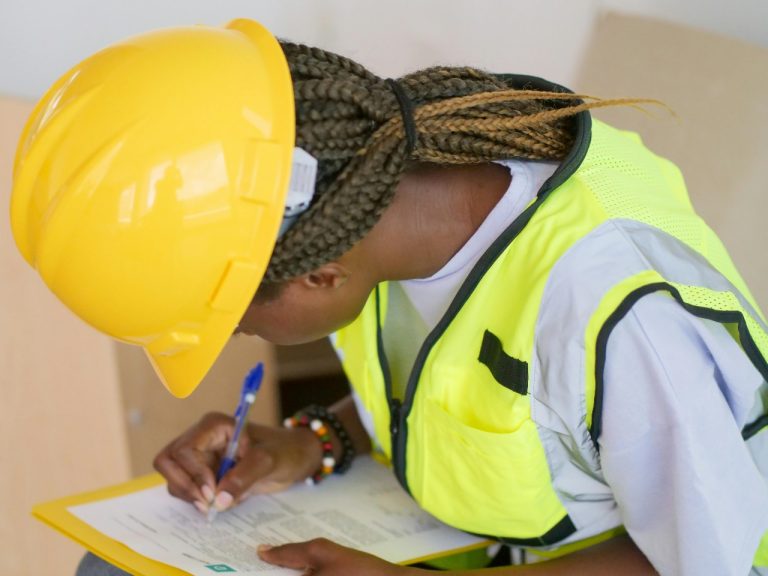
In the fast-paced world of construction, where multiple teams, tight deadlines, and significant investments converge, accurate documentation is more than just an administrative task—it is a cornerstone of project success. A construction daily report serves as a vital tool for keeping every aspect of a project transparent, organized, and accountable. From tracking labor hours to recording weather conditions and documenting progress, these reports create a reliable record that can protect against disputes, improve communication, and drive efficiency.
The construction industry is built on details. Missing or inaccurate information can cause delays, inflate costs, and erode trust among stakeholders. By maintaining a thorough construction daily report, project managers and contractors not only stay on top of day-to-day activities but also ensure accountability at every stage of the project.
Understanding the Role of a Construction Daily Report
A construction daily report is a detailed log that records the key activities, events, and progress of a construction site within a given day. It typically includes information about labor, equipment usage, materials delivered, weather conditions, incidents, delays, and any other notable developments. This documentation becomes an official record that can be referenced throughout the project lifecycle and even after completion.
For project managers, the daily report functions as a control mechanism. It allows them to compare actual progress against planned timelines, identify issues early, and make informed decisions before small problems escalate. For clients, it offers transparency, proving that the work they are paying for is moving forward as agreed. For legal purposes, it can serve as vital evidence in case of disputes over delays, defects, or safety incidents.
Enhancing Project Accountability Through Documentation
Accountability in construction is about ensuring that each party delivers on its commitments, whether it’s subcontractors meeting deadlines, suppliers delivering materials on schedule, or crews following safety protocols. A construction daily report enhances accountability in several ways by creating an unbroken chain of recorded facts.
When project details are documented daily, there is little room for ambiguity. If a delay occurs, the daily report can clarify whether it was caused by weather, supply shortages, or unforeseen site conditions. This clarity prevents finger-pointing and instead fosters a solutions-driven approach. Moreover, it holds every stakeholder to the same standard because performance can be measured against documented expectations rather than subjective impressions.
Improving Communication Across the Project Team
Construction projects often involve a complex web of communication between contractors, subcontractors, architects, engineers, and clients. Miscommunication is one of the most common causes of costly errors in the industry. A construction daily report serves as a single source of truth that all parties can reference.
By distributing these reports regularly, project managers ensure that everyone stays updated on progress, challenges, and upcoming work. This transparency not only builds trust but also helps prevent misunderstandings that could otherwise derail the project. In situations where multiple subcontractors are working simultaneously, the daily report can highlight potential scheduling conflicts before they impact productivity.
Strengthening Legal Protection and Risk Management
The legal and financial stakes in construction are high. Delays, disputes, and claims can result in significant losses. A construction daily report provides an official, timestamped record of events that can be used to defend against unfounded claims or to support legitimate ones.
For example, if a client disputes a delay, the report can show that work was halted due to adverse weather, documented with precise dates and descriptions. If there is a disagreement over whether materials were delivered on time, the report can provide the exact delivery records. In the event of workplace accidents, the report can serve as evidence of the site conditions and safety measures in place at the time.
By maintaining consistent and accurate reports, construction companies reduce their exposure to risk and increase their ability to resolve disputes quickly and fairly.
Driving Efficiency and Quality Control
A well-maintained construction daily report is not just about compliance—it’s also a powerful tool for improving efficiency and quality. When daily data is collected and analyzed, patterns emerge that can guide decision-making. If productivity slows during certain phases, the cause can be identified and addressed. If a particular subcontractor consistently delivers work ahead of schedule, their methods can be studied and replicated.
Quality control also benefits from consistent documentation. By recording inspections, defects, and corrective actions, project managers create a clear trail of accountability for the quality of workmanship. This proactive approach ensures that problems are resolved quickly, minimizing rework and cost overruns.
Ensuring Transparency with Stakeholders
Transparency is a core element of accountability. Clients, investors, and other stakeholders want to know that their project is progressing as planned. A construction daily report offers them insight into the real-time status of the build without requiring them to be physically present on-site.
For clients who are funding large-scale developments, these reports provide reassurance that resources are being used effectively. For public projects, they demonstrate responsible use of taxpayer money. By openly sharing daily progress, construction companies can strengthen relationships and enhance their reputation for reliability.
Adapting to Digital Reporting Solutions
Traditionally, daily reports were handwritten or typed and stored in binders, which made them difficult to search, share, or analyze. Today, modern construction management software has transformed the process. Digital construction daily report templates allow for quick data entry, photo uploads, automatic weather logging, and easy distribution to all stakeholders.
These tools not only save time but also improve accuracy. Automated features can prevent errors, and cloud storage ensures that reports are never lost. This technological shift means that even small contractors can maintain professional, detailed reports without adding significant administrative burden.
Building a Culture of Accountability
While tools and templates make the process easier, the true value of a construction daily report comes from the culture it supports. When everyone on the team understands that their work is being documented daily, it encourages professionalism, punctuality, and adherence to safety and quality standards.
This culture of accountability extends beyond the construction site. Suppliers strive to meet delivery deadlines, subcontractors take ownership of their work, and project managers make proactive decisions to keep everything on track. Over time, this consistent discipline leads to stronger teams and more successful projects.
Conclusion: The Daily Report as a Project Success Catalyst
A construction daily report is far more than a formality—it is a powerful instrument for ensuring project accountability, improving communication, reducing risk, and enhancing efficiency. It creates a transparent and verifiable record that protects all parties, strengthens relationships, and helps deliver projects on time and within budget.
In an industry where precision, trust, and reliability are essential, adopting a rigorous daily reporting process is not optional—it is a competitive advantage. For construction companies seeking to elevate their project management and client satisfaction, the daily report is not just a document; it is the backbone of accountability and the foundation for long-term success.



